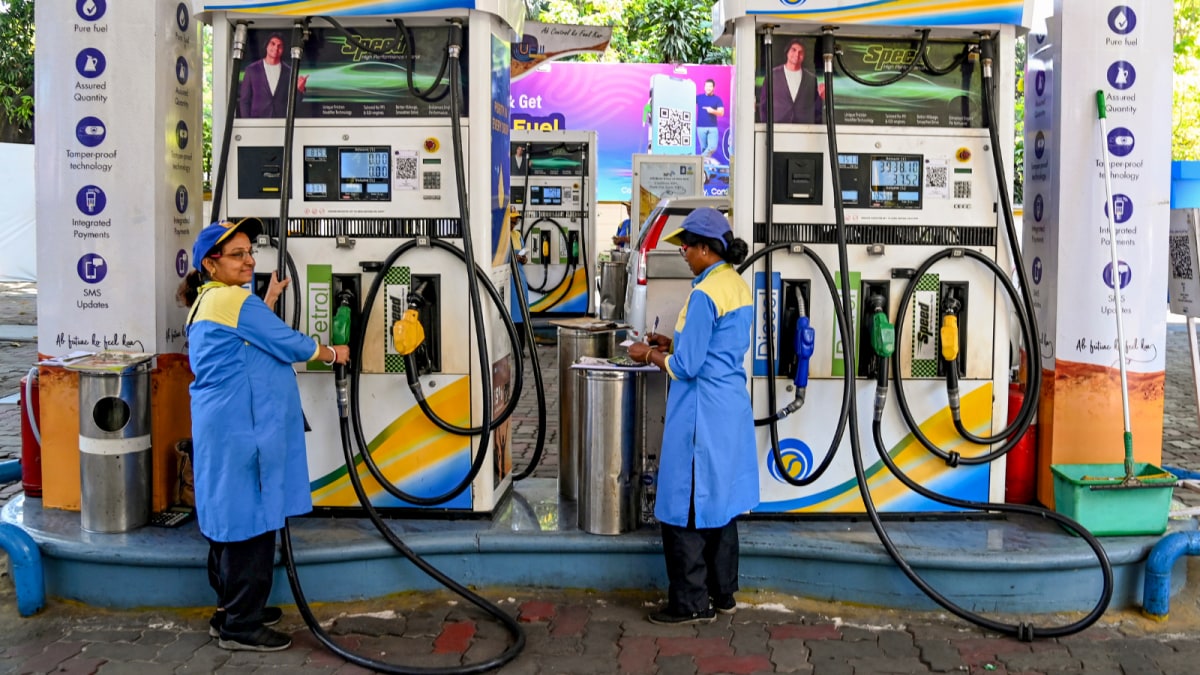Donald Trump will stand firm on the blanket 10% tariff on most UK imports into the US, his press secretary has indicated, as the Prime Minister declined to rule out the possibility of changes to tech taxes in a future trade deal.
Karoline Leavitt told a White House press briefing that the US president is “committed to the 10% baseline tariff” imposed in April “not just for the United Kingdom, but for his trade negotiations with all other countries as well”.
The 10% levy remained in place following Thursday’s deal between the UK and the US, but the Business Secretary had said negotiations with the US on it were set to continue.
Asked whether the 10% rate would still remain for the UK once the final details of the deal had been settled, the White House press secretary said: “The president is committed to the 10% baseline tariff, not just for the United Kingdom, but for his trade negotiations with all other countries as well.”
The deal announced on Thursday cut taxes on car imports of 100,000 a year from 27.5% to 10%, and also reduced tariffs on steel and aluminium through quotas.
On the Government’s efforts to try and reduce or even remove the wider 10% levy, Business Secretary Jonathan Reynolds had told reporters on Thursday: “The process by which we will continue the negotiation with the US about those wider tariff lines and the 10% reciprocal tariff continues. There is no deadline for that.”
It comes as Sir Keir Starmer did not rule out the possibility of changes to the digital services tax as part of any future trade agreement and said that discussions on other aspects are “ongoing”.
It imposes a 2% levy on the revenues of several major US tech firms. Previous speculation had suggested that the UK could revise the measure as part of a deal.
Speaking to broadcasters on board HMS St Albans during a visit to Norway, Sir Keir said: “The deal that we signed off yesterday doesn’t cover that.
“That’s predominantly focused on steel and aluminium, and reducing those tariffs on car manufacturing and reducing the tariffs there, and then future-proofing for pharmaceuticals, three really important sectors, and that, as I say, will be measured in thousands and thousands of jobs that will be protected, saved and will thrive as a result of this.
“On digital services, there are ongoing discussions, obviously, on other aspects of the deal, but the important thing to focus on yesterday is the sectors that are now protected that the day before yesterday were very exposed.”
Kemi Badenoch has said she is “concerned” about the prospects of the UK going on to strike a full free trade agreement.
Speaking to reporters during a visit in Essex on Friday, the Conservative leader was asked whether she thought Thursday’s deal was a success.
“It’s not a huge success at all,” she said. “It’s not even a trade deal, it’s a tariff deal, and we are in a worse position now than we were six weeks ago.
“It’s better than where we were last week, so it’s better than nothing, but it’s not much.
“One of the things that concerns me is that we will probably now not get a comprehensive free trade agreement.”
#Trump #committed #tariff #rate #deal #White #House










